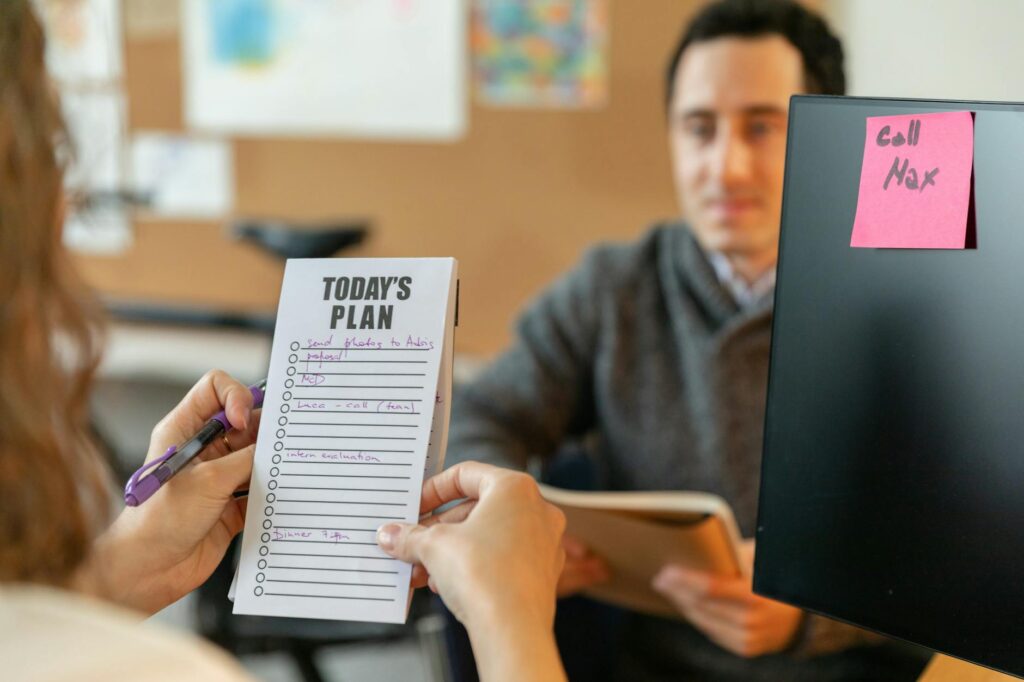What is task delegation methods?

What is Task Delegation Methods?
Every day, we juggle dozens of tasks, whether at work, home, or school. In this whirlwind of responsibilities, task delegation methods emerge as a lifeline. They not only enhance productivity but also contribute to a healthier work-life balance. But what does it really mean to delegate tasks effectively? Let’s explore this essential skill and its various approaches.
Understanding Task Delegation Methods
Task delegation methods refer to the strategies used to assign responsibilities to others, ensuring that tasks are completed efficiently and effectively. Whether you’re leading a team at work, managing a household, or coordinating a group project, knowing how to delegate can significantly enhance your productivity.
What is Task Delegation?
At its core, task delegation is the process of assigning specific responsibilities to others. The purpose is clear: by distributing tasks, you can focus on what truly matters while empowering others to contribute their skills. Delegation is not just about offloading work; it’s about harnessing the strengths of your team or peers to achieve a common goal.
Benefits of Task Delegation Methods
Implementing effective task delegation methods comes with several advantages:
-
Increased Efficiency: When tasks are properly delegated, work gets done faster. You can accomplish more because you’re not stuck doing everything yourself.
-
Time Management: Delegation allows you to allocate your time more wisely. By passing on responsibilities, you can focus on higher-priority tasks that require your expertise. Consider reading about the benefits of effective delegation for a deeper understanding.
-
Improved Focus: With fewer tasks cluttering your mind, you can concentrate better on your primary objectives. This leads to better decision-making and quality outcomes.
-
Skill Development: Delegation helps others learn and grow by taking on new challenges. It fosters a culture of continuous improvement within teams.
-
Enhanced Team Morale: When team members feel trusted with responsibilities, it boosts their confidence and motivation.
Types of Task Delegation Methods
Understanding the different types of task delegation methods can help you choose the best approach for your situation. Here are some commonly used methods:
Direct Delegation
Direct delegation involves assigning specific tasks to an individual without much collaboration. This method is effective when you trust the delegatee’s abilities and the tasks are straightforward.
For example, if you’re managing a team, you might assign a team member to prepare a report. You provide them with the necessary guidelines, and they take it from there. This method works well for routine tasks where clarity is essential.
Collaborative Delegation
Collaborative delegation encourages teamwork. Here, tasks are assigned to a group rather than an individual, allowing for brainstorming and shared responsibility. This approach is especially useful in environments that value creativity and diverse input.
Imagine working on a marketing campaign where the entire team collaborates to generate ideas and delegate tasks based on individual strengths. This method fosters a sense of ownership and innovation.
Consultative Delegation
Consultative delegation is vital when tasks require specific expertise or strategic thinking. In this method, the leader consults team members before making decisions about task assignments.
For example, if you’re leading a project that involves technical skills, you might discuss potential assignments with your team to gauge their strengths and preferences. This technique promotes engagement and ensures that tasks are assigned to the right individuals.
Automated Delegation
With the rise of technology, automated delegation is increasingly popular. Tools and software can help streamline task assignments and track progress.
Using platforms like Asana or Trello can automate reminders and task updates, making it easier to manage workloads efficiently. Automated delegation ensures accountability and helps keep everyone on the same page.
Best Practices for Effective Task Delegation
To reap the benefits of task delegation, consider these best practices:
Clearly Define Tasks and Expectations
Ambiguity can lead to misunderstandings and frustration. Clearly articulate what the task involves, the expected outcomes, and any deadlines. When everyone knows what’s at stake, it sets the stage for success.
Choose the Right Delegatee
Not everyone is suited for every task. Assess individuals’ skills, interests, and readiness before delegating. Matching tasks with the right people increases the likelihood of successful outcomes.
Maintain Communication and Feedback
Open lines of communication are essential for successful delegation. Regularly check in to provide support and gather feedback. This approach fosters trust and keeps everyone aligned with the project’s goals.
Challenges and Solutions in Task Delegation
While task delegation is beneficial, it’s not without its challenges. Here are some common issues and practical solutions:
Overcoming Trust Issues
Trust is fundamental in delegation. If you find it hard to trust others with tasks, start small. Delegate less critical tasks initially to build confidence in your team. Gradually increase responsibilities as trust grows.
Managing Oversight and Control
Striking the right balance between oversight and micromanagement can be tricky. Establish clear expectations and deadlines, but allow your team the autonomy to complete tasks in their own way. This approach fosters accountability while preventing feelings of being overly controlled.
Conclusion
In a world where time and resources are often stretched thin, mastering task delegation methods can unlock new levels of productivity and balance. By learning to delegate effectively, you’re not just lightening your load—you’re empowering others to shine. Embrace these strategies and watch your productivity soar, allowing for a more fulfilling and manageable workload.
If you’re looking for more tips on effective delegation, check out this guide on how to delegate effectively. The path to enhanced productivity starts with good delegation practices!

Photo by RDNE Stock project